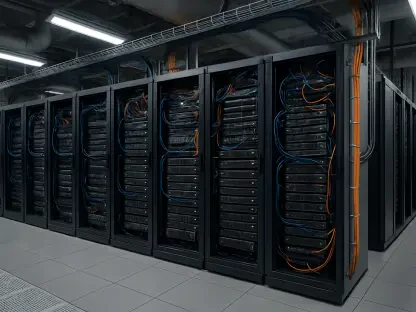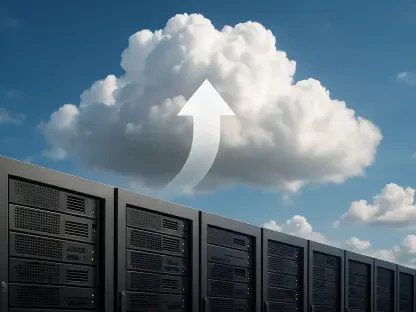In an era where digital infrastructure is expanding at an unprecedented pace, the demand for sustainable practices in data center operations has never been more critical, especially in regions like Johor, Malaysia, which is emerging as a hub for such facilities. With the global data center industry often criticized for its high water consumption—primarily for cooling systems—innovative solutions are essential to balance growth with environmental responsibility. Johor stands out as a trailblazer in this regard, leveraging strategic partnerships and alternative water sources to redefine how data centers can operate sustainably. This Southeast Asian state is not only addressing the immediate needs of a booming industry but also setting a benchmark for others to follow. As investments pour in and new facilities multiply, the focus on resource management becomes a compelling narrative of progress and foresight, showcasing a model where technology and ecology can coexist harmoniously.
Innovations in Water Management for Data Centers
Reclaimed Water Solutions
Johor’s approach to sustainable data center operations is exemplified by groundbreaking initiatives in water reclamation, a method that transforms treated effluent into a viable resource for industrial cooling. Bridge Data Centres (BDC), a key player in this space, has been operational with a water reclamation plant in Ulu Tiram since June, processing treated effluent from a local sewage treatment facility at an impressive rate of four million liters per day. This water, purified to high-grade standards through advanced treatment processes, is transported via a dedicated pipeline system to support cooling needs. Such an initiative represents a significant stride, potentially marking it as one of the largest of its kind for data centers globally. The adoption of reclaimed water not only reduces the strain on potable water supplies but also highlights a scalable solution that could inspire similar efforts in water-scarce regions, proving that industrial demands can be met without compromising essential resources.
The momentum continues with other operators joining the movement toward sustainable water use in Johor. Computility Technology (Malaysia) Sdn Bhd has forged a similar agreement with Johor Special Water (JSW) to produce reclaimed water for its upcoming facility in Iskandar Puteri, set to commence operations by December. This partnership mirrors the commitment to alternative water sources, ensuring that as the industry grows, it does so with minimal impact on local water reserves. By integrating wastewater recycling into their operational framework, these companies are not just addressing immediate needs but also contributing to a broader vision of environmental stewardship. The collaboration with JSW, a state utility, underscores a unified effort to manage resources effectively, positioning Johor as a leader in rethinking how data centers can operate within ecological limits while supporting technological advancement.
Raw Water Supply Strategies
Beyond reclaimed water, Johor is exploring diverse alternative sources to meet the colossal water demands of data centers, with raw water supply emerging as a vital component of this strategy. DayOne Data Centres has signed an agreement with JSW to secure raw water from the Tebrau River for its facility in Kempas Tech Park, with operations expected to start in November. This approach taps into natural water bodies that require less processing compared to potable supplies, thereby easing the burden on municipal systems. It reflects a pragmatic understanding of the need to diversify water sources as the industry expands, ensuring that data centers can scale without depleting critical reserves. Such initiatives are a testament to Johor’s forward-thinking policies, which prioritize sustainable resource allocation amid rapid industrial growth.
Complementing these efforts, the state’s utility frameworks are adapting to handle the increasing requests for water from data center operators, with JSW managing demands totaling 136 million liters per day. An additional seven applications for 76 million liters daily are under review, signaling the scale of expansion and the urgency to implement alternative solutions. The use of raw water, alongside other non-potable sources, illustrates a comprehensive strategy to safeguard freshwater supplies while supporting economic development. This balance is crucial in a region experiencing a data center boom, where the influx of investments—amounting to billions—must be matched with responsible practices. Johor’s ability to integrate raw water into its industrial ecosystem serves as a blueprint for other regions grappling with similar challenges in resource management.
Strategic Growth and Sustainability Balance
Data Center Expansion in Johor
Johor’s emergence as a data center hotspot is underscored by staggering investment figures and a surge in facility applications, reflecting the state’s strategic importance in the digital economy. As of the second quarter, over 50 applications for new data centers have been submitted, representing investments of approximately RM164.45 billion, with 42 already approved. This rapid growth positions Johor as a critical node in Malaysia’s tech infrastructure, driven by its proximity to global markets and favorable business conditions. However, such expansion brings with it the challenge of resource management, particularly water, which is integral to data center operations. The state’s proactive measures to address these needs through sustainable practices are shaping a narrative of responsible industrial progress that aligns economic goals with environmental imperatives.
The scale of this development necessitates oversight, and Johor has responded by establishing the Johor Data Centre Development Coordination Committee to streamline growth and prioritize sustainability. This body focuses on integrating renewable energy and alternative water solutions into the planning of new facilities, ensuring that the industry’s expansion does not outpace resource availability. The state leadership, including Johor Menteri Besar Datuk Onn Hafiz Ghazi, has emphasized the importance of sustainable practices as a cornerstone of this growth. By fostering collaboration between government entities and private operators, Johor is creating an ecosystem where data centers can thrive without compromising the region’s ecological balance, setting a precedent for how industrial hubs can manage rapid urbanization and technological advancement concurrently.
Building a Model for Environmental Stewardship
Johor’s commitment to sustainability in the data center sector extends beyond immediate water solutions to a broader vision of environmental stewardship that could influence global standards. The partnerships between state utilities like JSW and private entities demonstrate a cohesive approach to tackling water scarcity, a pressing issue as digital infrastructure demands soar. By promoting the use of reclaimed, raw, and other non-potable water sources, Johor mitigates pressure on freshwater reserves, an effort that resonates with global calls for greener industrial practices. This model of balancing growth with conservation is particularly relevant in a region experiencing significant economic stakes, where the success of these initiatives could inspire replication in other parts of Malaysia and beyond.
Reflecting on these efforts, it’s clear that Johor has navigated the challenges of rapid data center expansion by forging strategic alliances and prioritizing innovative resource management. The successful implementation of water reclamation and alternative supply agreements marked a turning point in how industrial needs were met without sacrificing environmental integrity. Looking ahead, the focus should shift to scaling these solutions, perhaps by integrating advanced technologies for water treatment or exploring additional natural sources. Encouraging knowledge-sharing among regions facing similar pressures could further amplify the impact of Johor’s pioneering work. As the digital economy continues to evolve, adopting and adapting such sustainable frameworks will be essential to ensure that technological progress aligns with the planet’s long-term well-being.









